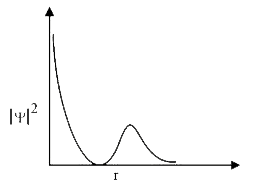Magnetic quantum number specifies ____________
To answer the question "Magnetic quantum number specifies '____________'", we can break down the information provided in the video transcript step by step.
1. Understanding Quantum Numbers:
- There are four types of quantum numbers that describe the properties of electrons in an atom:
- Principal quantum number (n)
- Azimuthal quantum number (l)
- Magnetic quantum number (m)
- Spin quantum number (s)
Hint: Remember that quantum numbers are used to describe the energy levels and the position of electrons in an atom.
2. Identifying the Magnetic Quantum Number:
- The magnetic quantum number (m) specifically relates to the orientation of the orbital in which an electron resides.
Hint: Think about how different orbitals can be oriented in space.
3. Range of Values for Magnetic Quantum Number:
- The magnetic quantum number can have values ranging from -l to +l, where l is the azimuthal quantum number. This means that for each value of l, there are (2l + 1) possible values of m.
Hint: Recall that the azimuthal quantum number (l) can take values from 0 to n-1.
4. Conclusion:
- Therefore, the magnetic quantum number specifies the orientation of the orbital in which the electron is located.
Final Answer:
Magnetic quantum number specifies the orientation of the orbital.
- There are four types of quantum numbers that describe the properties of electrons in an atom:
- Principal quantum number (n)
- Azimuthal quantum number (l)
- Magnetic quantum number (m)
- Spin quantum number (s)
- The magnetic quantum number (m) specifically relates to the orientation of the orbital in which an electron resides.
- The magnetic quantum number can have values ranging from -l to +l, where l is the azimuthal quantum number. This means that for each value of l, there are (2l + 1) possible values of m.
- Therefore, the magnetic quantum number specifies the orientation of the orbital in which the electron is located.
Magnetic quantum number specifies the orientation of the orbital.
Topper's Solved these Questions
- ATOMIC STRUCTURE BOOK - PEARSON IIT JEE FOUNDATIONCHAPTER - ATOMIC STRUCTURE EXERCISE - Short Answer type Question
3 Videos
- ATOMIC STRUCTURE BOOK - PEARSON IIT JEE FOUNDATIONCHAPTER - ATOMIC STRUCTURE EXERCISE - LEVEL-1
44 Videos
- ATOMIC STRUCTURE BOOK - PEARSON IIT JEE FOUNDATIONCHAPTER - ATOMIC STRUCTURE EXERCISE - LEVEL-3
8 Videos
- ACIDS, BASES AND SALTSBOOK - PEARSON IIT JEE FOUNDATIONCHAPTER - ACIDS, BASES AND SALTSEXERCISE - Level 3
9 Videos
- CHEMICAL KINETICS AND EQUILIBRIUMBOOK - PEARSON IIT JEE FOUNDATIONCHAPTER - CHEMICAL KINETICS AND EQUILIBRIUMEXERCISE - Level 3
10 Videos
Similar Questions
Knowledge Check
Subsidiary quantum number specifies
ASize of orbitalBShape of orbitalCOrientations stabilityDNuclear stabilityFor the principal quantum number n = 2, the possible values of azimuthal quantum number and magnetic quantum number respectively are
A0, 1 , 2 and 1, 2,3B0, 1, 2 and -1, 0, +1C0, 1 and -1, 0, +1D1, 2, 3 and -1, 0, +1Principal azimuthal , and magnetic quantum numbers are respetively related to
ASize, orientation and shapeBSize, shape and orientationCShape, size and orientationDNone of these
The number of electrons present in the Br− ion that have the value of magnetic quantum number m=+1 is ______.
View SolutionThe number of electrons present in the Br− ion that have the value of magnetic quantum number m=+1 is ______.
View SolutionThe number of electrons present in the Br− ion that have the value of magnetic quantum number m=+1 is ______.
View Solution" I=3,then the values of magnetic quantum number are "
View SolutionFor p-orbital, the magnetic quantum number has value
View Solution

